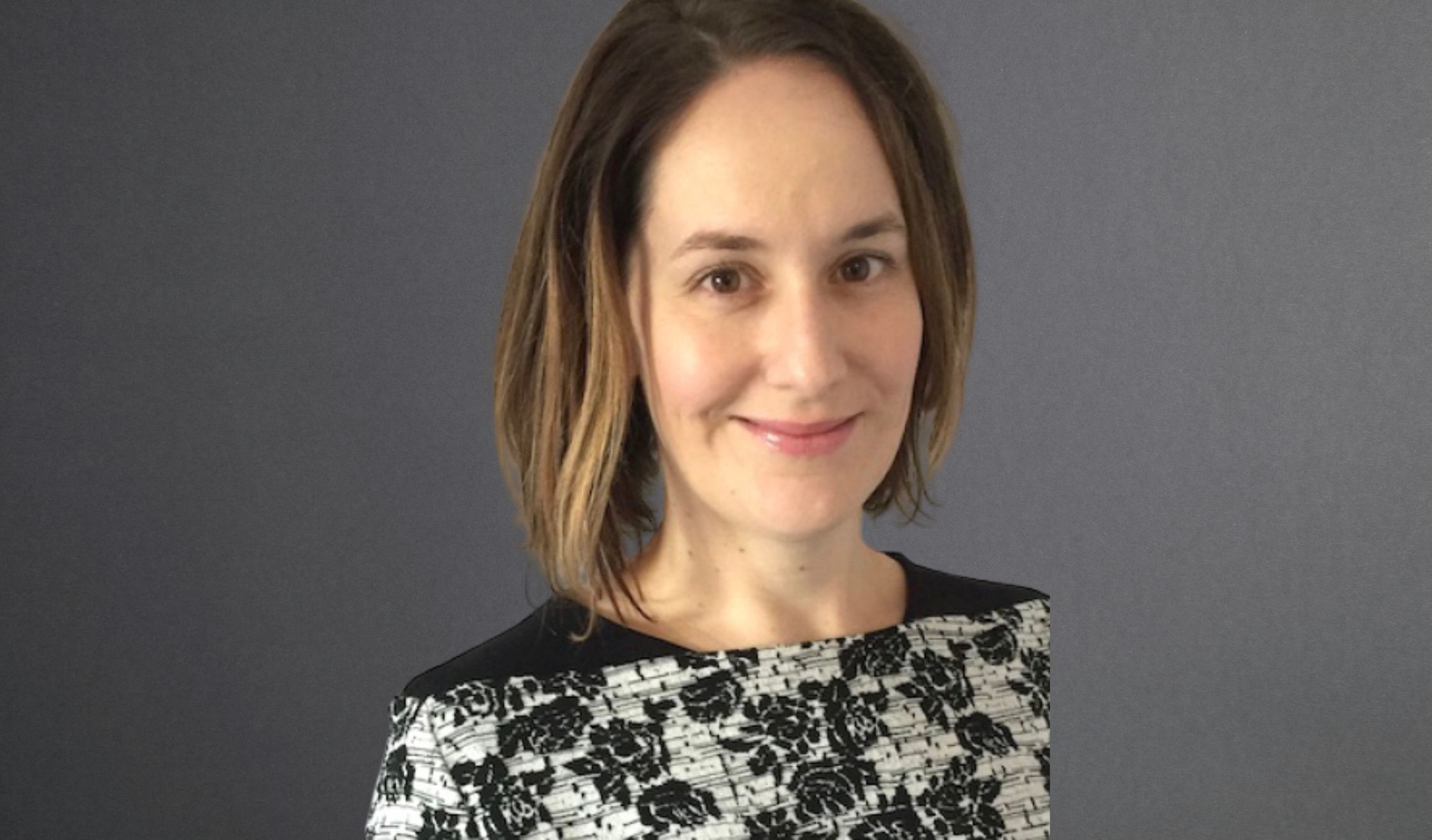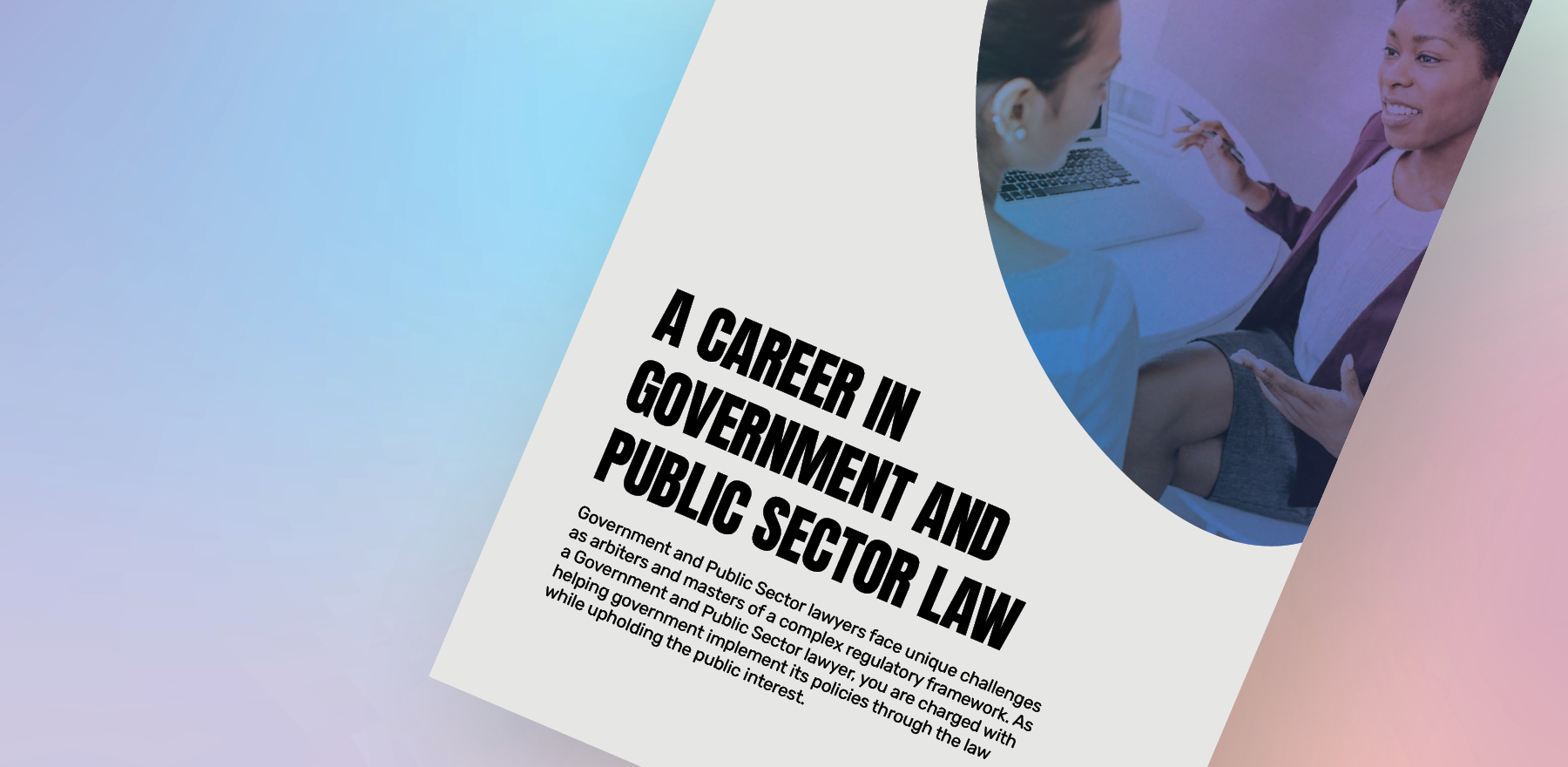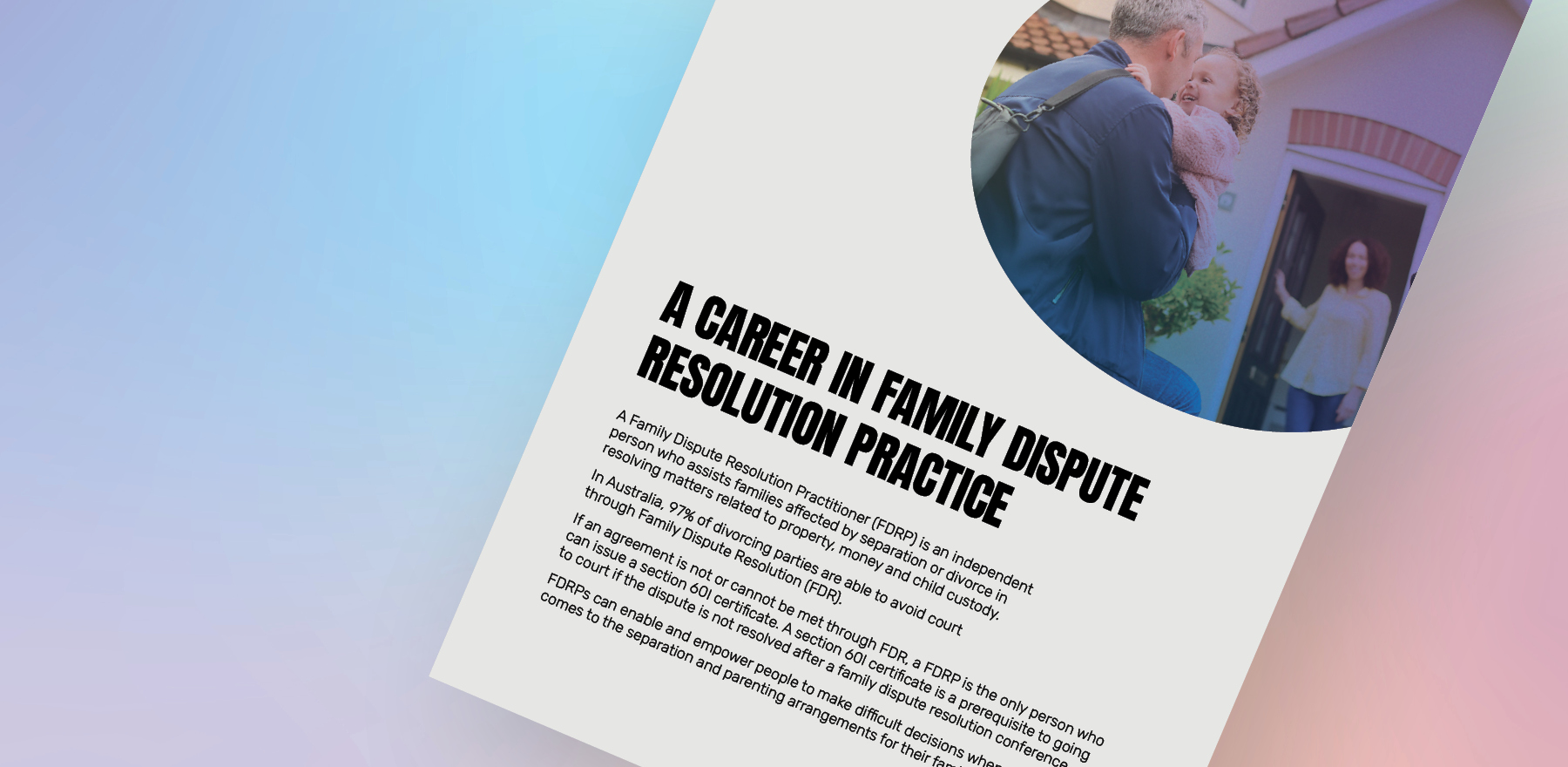When a client’s mental capacity is in doubt, the results can be significant. For legal practitioners in Wills & Estates, finding clear ways to consider and assess mental capacity in a variety of situations is crucial.
We spoke to College of Law Lecturer Josephine Pignataro, Special Counsel at HWL Ebsworth, and Accredited Specialist in Wills and Estates. Josephine has also been recognised by Doyle’s Guide for Estate Litigation and Estate Planning. In this Wills & Estates update, Josephine shares key elements from the Law Council of Australia’s Best Practice Guide for Legal Practitioners on Assessing Mental Capacity or ‘the BPG’.
Why was the BPG introduced?
The Law Council of Australia developed the BPG in response to a recommendation by the 2017 Australian Law Reform Commission report “Elder Abuse: A National Legal Response”.
“The BPG is an attachment to the Law Council of Australia’s Best Practice Guide for Legal Practitioners in Relation to Elder Financial Abuse,” Josephine explains. “Both Guides were published on 15 June 2023, which was World Elder Abuse Awareness Day.”
“Many of the Law Council’s constituent bodies have already produced materials about client mental capacity and what to do when a client’s mental capacity is in doubt. These materials are still relevant, however, the BPG provides practical and up-to-date information and guidance on this issue and is a welcome addition in this space. It is also a shorter and more concise version of many of these other materials. Importantly, the BPG clarifies a legal practitioner’s responsibility in assessing mental capacity in various circumstances.”
When do issues of Client Capacity normally arise?
According to Josephine, there are some common circumstances in which client capacity can come into question.
“Issues with client capacity sometimes arise with clients (especially testators) over the age of 70 years, those who are frail and infirm, being cared for by someone or residing in a nursing home or other facility. There can sometimes be a question about client capacity even for younger clients who are hospitalised and nearing death. Death bed wills can be particularly challenging.”
What Wills & Estates practitioners need to know
Essentially, the BPG establishes that it is solely the legal practitioner’s responsibility to decide whether the client has the necessary mental capacity to undertake the task at hand.
“The legal practitioner may be assisted by an expert opinion about the client’s medical condition, but that opinion does not release the legal practitioner from the responsibility of forming an independent opinion concerning their client’s mental capacity,” Josephine says.
The BPG emphasises the distinction between mental capacity for legal activities except for will making, and mental capacity for will making. As Josephine explains, this distinction is critical.
“Remember that there is a presumption of mental capacity for all legal activities except will making, but even in the face of that presumption, the Court will look closely at the facts in determining whether the client has the mental capacity to understand the nature of the legal activity.”
Practitioners should therefore understand what facts may be relevant and how they relate to and inform a decision relating to a client’s mental capacity.
“Facts identified in the BPG include but are not limited to the identity and relationship of the parties, the effect of the legal activity and the context or circumstances in which the legal activity arose,” Josephine says.
“When dealing with wills, note that there is no automatic presumption of testamentary capacity, but a rebuttable presumption of testamentary capacity will arise when the propounder of the will proves that the will is regular on its face and has been duly executed. When looking at estate litigation, certain evidentiary burdens and onuses then arise.”
How can Wills & Estates practitioners achieve best practice when assessing Client Capacity?
Considering these presumptions, and the fact that assessing Client Capacity is solely the responsibility of the legal practitioner, Josephine advises making full file notes, as the solicitor is required to do. She also suggests asking open questions. At a minimum, when dealing with testators, these should establish:
- that the testator is aware, and appreciates the significance, of the act in the law which he or she is about to embark upon;
- that the testator is aware, at least in general terms, of the nature, extent, and value of the estate over which he or she has a disposing power;
- that the testator is aware of those who may reasonably be thought to have a claim upon his or her testamentary bounty, and the basis for, and nature of, the claims of such persons; and
- that the testator has the ability to evaluate, and to discriminate between, the respective strengths of the claims of such persons.
“The BPG has identified that a medical opinion will often be the appropriate first step in resolving doubt about mental capacity,” Josephine says. “Guidance is given in relation to what to ask the practitioner, noting that the test for mental capacity is a legal test, not a medical one.”
How can you make the most of the BPG?
The BPG is immensely useful, as it provides clear and up-to-date guidance, key information, as well as a ready reference for reviewing and assessing mental capacity in a variety of situations and transactions.
To make the most of the BPG’s recommendations, Josephine advises practitioners to closely consider the particular facts presented to them as they make an assessment of a client’s capacity.
“In particular, what is the context of the transaction?” Josephine says. “A full range of open-ended questions should be asked in order to ascertain this. Matters such as family history and the ‘who, what, when and why’ of the transaction can be important.”
Interested in reviewing the full BPG? Both Law Council Guides are available here.
Want to specialise in Wills & Estates? Learn more about the College of Law’s Wills & Estates Applied LLM Program here.



































![How to handle Direct Speech after Gan v Xie [2023] NSWCA 163](https://images4.cmp.optimizely.com/assets/Lawyer+Up+direct+speech+in+drafting+NSW+legislation+OCT232.jpg/Zz1hNDU4YzQyMjQzNzkxMWVmYjFlNGY2ODk3ZWMxNzE0Mw==)





















































